Introduction
How Long Do Cockatiels Live: Cockatiels, those charming and charismatic parrots with their distinctive crests and melodious voices, have captured the hearts of bird enthusiasts around the world. As delightful companions, they often become cherished members of households. However, as with any pet, it’s crucial for prospective owners to understand their longevity and the commitment required for their care. By the end of this discussion, you’ll have a comprehensive understanding of the factors that influence their lifespan and the steps you can take to ensure a fulfilling and extended life for these beloved feathered friends. Cockatiels, native to Australia, are renowned for their playful personalities, striking plumage, and ability to mimic sounds and melodies. These qualities make them popular choices among avian enthusiasts, often leading to lifelong bonds between owners and their feathered companions. However, the lifespan of a cockatiel is a crucial aspect to consider when welcoming one into your home, as it dictates the level of care, commitment, and emotional investment required.
This inquiry into their lifespan will not only provide you with essential information but also highlight the significance of responsible ownership and the rewards of nurturing a cockatiel through the various stages of their life. So, let’s embark on this journey to uncover the secrets of how long these delightful birds can grace our lives. On average, cockatiels live for about 15 to 20 years in captivity. However, with proper care, some cockatiels have been known to live well into their 20s or even longer. This extended lifespan underscores the importance of providing these birds with a nurturing environment and the right diet and healthcare. Proper nutrition is a key factor in determining a cockatiel’s lifespan. They require a balanced diet that includes high-quality pelleted food, fresh fruits, and vegetables. Avoiding foods that are toxic to birds, such as chocolate and avocado, is essential. Providing a spacious, clean, and stimulating cage or aviary is vital for the well-being of your cockatiel. They need room to fly, climb, and explore. Ensuring a safe and comfortable living space will contribute to their longevity.
Cockatiels are highly social birds that thrive on interaction with their human companions. Loneliness and boredom can lead to stress and health issues. Regular socialization, mental stimulation, and playtime are crucial for their overall happiness and longevity. Regular veterinary check-ups, including beak and nail trimming, are essential to catch and treat potential health issues early. Cockatiels are prone to diseases like respiratory infections, so maintaining a clean environment and monitoring their health is crucial. Genetics can also play a role in a cockatiel’s lifespan. Some individuals may have genetic predispositions to certain health conditions. Breeding from reputable breeders who prioritize the health of their birds can help mitigate this factor. Cockatiels, like humans, go through different life stages. Understanding these stages can help you provide appropriate care at each phase. They include baby, juvenile, adult, and senior stages, each with its specific requirements.
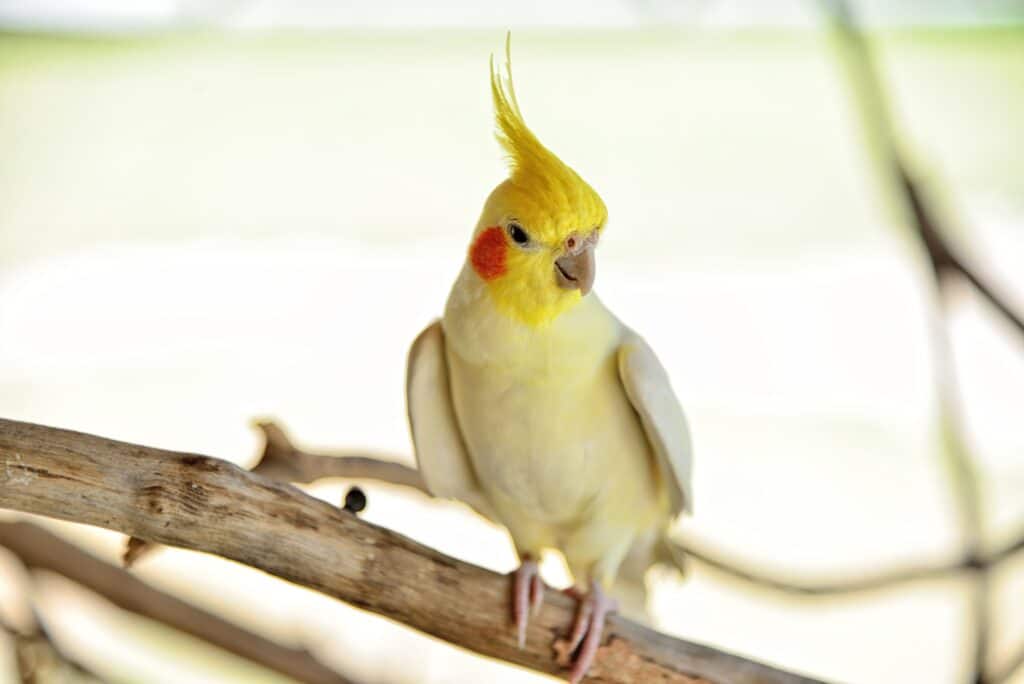
Can a cockatiel live for 20 years?
In the wild, cockatiels live up to 10-15 years. When domesticated, they can easily live for 15-20 years, and even 30! Sudden diseases or conditions like egg binding can cut your pet bird’s life unexpectedly short. A balanced diet and good mental health also go a long way toward enhancing their lifespan.
The genetics of an individual cockatiel play a role in determining its lifespan. Some birds may have inherited genetic predispositions that affect their overall health and longevity. Choosing a cockatiel from a reputable breeder can help mitigate potential genetic issues.
Providing a well-balanced diet is crucial for a cockatiel’s long-term health. A diet rich in high-quality pellets, fresh fruits, and vegetables, supplemented with appropriate vitamins and minerals, supports their overall well-being and can extend their lifespan.
A spacious, clean, and stimulating living environment is essential for the physical and mental health of a cockatiel. Providing them with plenty of room to move, exercise, and explore can contribute to their longevity.
Cockatiels are highly social birds that thrive on human interaction. Regular socialization, mental stimulation, and companionship help prevent loneliness and boredom, which can negatively impact their health and lifespan.
Can 1 cockatiel live alone?
Cockatiels are social creatures and will not be happy if left alone. However, you can offer them company in many ways. Lots of people own single cockatiels that are very closely bonded to their owner. As long as the bird gets enough time and interaction, it will grow up healthy.
Cockatiels are naturally social birds and thrive on companionship. In the wild, they live in flocks and form strong bonds with other birds. This social nature extends to their interactions with humans. When kept alone, a cockatiel may experience loneliness and boredom, which can lead to behavioral and health issues.
If you decide to keep a single cockatiel, it’s essential to provide them with ample human interaction. Spend time with your bird daily, talking to them, playing, and offering mental stimulation. Your presence can help compensate for the lack of avian companionship.
Some cockatiels may adapt better to living alone than others. If you notice that your bird is content and thriving in solitude, it may be more suitable for single-bird living. However, many cockatiels will benefit from the company of a fellow cockatiel.
Can cockatiels fall in love?
Yes, cockatiels can fall in love with their owners. Out in the wild, cockatiels are monogamous mates. This behavior carries over into captivity as well. They might begin viewing their owner as their mate.
Cockatiels are naturally social birds. In the wild, they live in flocks and often form strong social bonds with other cockatiels. These bonds serve various functions, including mutual grooming, companionship, and protection. When kept as pets, cockatiels may transfer these social behaviors and bonding tendencies to their human caretakers.
Cockatiels are known for their capacity to form strong pair bonds, particularly if they are kept with a mate or another cockatiel companion. These pair bonds can be profound and enduring, with birds often displaying affectionate behaviors such as preening each other, regurgitating food, and vocalizing together.
Cockatiels can also form deep attachments to their human caregivers. Spending quality time with your bird, providing affection, and interacting with them can foster a sense of trust and attachment. Cockatiels may seek physical closeness, like perching on your shoulder or cuddling with you, which can be seen as expressions of affection.
Are cockatiels hard to keep alive?
Cockatiels aren’t high maintenance, especially compared to other birds, but it is important to note how much attention and variety they require to live long healthy lives. Improper care or diet can lead to health issues more rapidly than in other non-avian species, and they will be less tolerant of lulls in care.
One of the fundamental aspects of cockatiel care is providing them with a balanced and nutritious diet. A diet rich in high-quality cockatiel pellets, fresh fruits, and vegetables is essential. Ensuring they receive the right nutrients is crucial for their overall health and longevity.
Maintaining a clean living environment is vital. Cockatiels are sensitive to airborne pollutants and can suffer from respiratory issues if exposed to dusty or dirty conditions. Regularly cleaning their cage, providing fresh water, and keeping their surroundings free from potential hazards are key to their well-being.
Cockatiels are highly social birds and thrive on human interaction. Neglecting their need for companionship and stimulation can lead to boredom, loneliness, and behavioral issues. Spending time with your cockatiel, talking to them, and providing mental enrichment are crucial for their mental and emotional health.
Are cockatiels happier in pairs?
Cockatiels do not necessarily need to live in pairs. If your new bird is tame and likes to be handled, then you are her companion. At her age, it would not be a good idea to get a male, because you don’t want to encourage her to breed. And she might not accept a female.
Natural Social Behavior: In the wild, cockatiels are social creatures that form close-knit flocks. These flocks provide not only companionship but also safety, as there’s strength in numbers. This social behavior extends to captive cockatiels, and many thrive when they have a feathered companion.
When kept in pairs or small groups, cockatiels have the opportunity to engage in natural behaviors like preening each other, sharing food, and vocalizing together. These activities mimic the social bonds they would form in the wild and can contribute to their overall happiness.
While companion cockatiels can provide each other with a great deal of social interaction, it’s crucial to remember that human interaction remains vital. A pair or group of cockatiels should not replace the need for regular interaction and bonding with their human caregivers.
Can you have 2 cockatiels together?
Yes, same sex cockatiels can get along just fine. However, not all birds will get along. Most likely if you can find another older male that is lonely, they will get along. But you need to be prepared in case they do not get along.
Cockatiels are naturally social creatures, both in the wild and in captivity. In their native habitat of Australia, they often form flocks and maintain close bonds with other members of their species. This social nature extends to captive cockatiels, and they often enjoy the companionship of other birds.
Pairing two cockatiels together can provide them with valuable companionship. They can engage in behaviors such as preening each other, sharing food, and vocalizing together. These interactions mimic the social bonds they would form in the wild and can contribute to their overall well-being.
Pair-bonded or group-bonded cockatiels often appear to be emotionally content. Having a feathered companion can provide them with comfort, security, and a sense of belonging, leading to reduced stress levels and increased happiness.
Can a cockatiel live in a cage?
Cockatiels need roomy cages (at least 1m x 1m)for their long tail feathers alone. These birds are elegant fliers and therefore should have the opportunity to fly freely around the room. They can survive in an outdoor aviary for the whole year, if provided with a frost-proof shelter.
The size of the cage is critical to the well-being of your cockatiel. A larger cage allows for more movement and exercise. As a general guideline, a cage for a single cockatiel should be at least 24 inches in width, depth, and height. If you have multiple cockatiels, opt for an even larger enclosure.
Ensure that the cage has appropriate bar spacing. Cockatiels are medium-sized birds with specific needs, so the bars should be spaced no more than 5/8 to 3/4 inches apart to prevent them from escaping or getting stuck.
Place the cage in a well-ventilated area, away from drafts, direct sunlight, and extreme temperature fluctuations. Cockatiels are sensitive to temperature changes and can become stressed or ill if exposed to extremes.
How old cockatiel lay eggs?
While egg laying can occur in any breed, it is most common in cockatiels, lovebirds, budgies, canaries, and finches. Egg laying can start anytime from 5 months to over 10 years of age. If you find an egg, you want to immediately correct any environmental factors that predispose your bird to lay eggs.
The overall health and diet of the cockatiel play a significant role in egg production. Proper nutrition is essential. A well-balanced diet that includes a high-quality pelleted food, fresh fruits, and vegetables is crucial. Calcium is particularly important for egg-laying females, so providing calcium supplements or calcium-rich foods can help prevent egg-related health issues.
The environment in which a cockatiel is kept can influence its egg-laying behavior. If a female cockatiel perceives her environment as suitable for nesting, she may be more inclined to lay eggs. Factors such as the availability of nesting materials, darkness, and the presence of a potential mate or even a bonded human caregiver can trigger egg-laying behavior.
Female cockatiels may exhibit certain behaviors when they are preparing to lay eggs. These behaviors can include spending more time in a nesting box or secluded area, vocalizing differently, and becoming more territorial.
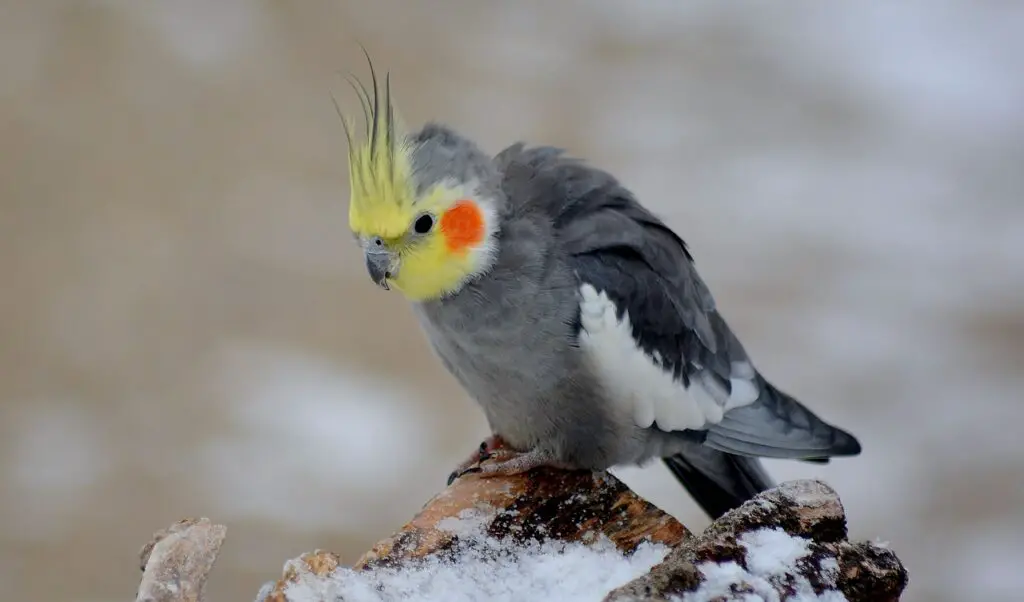
Conclusion
Cockatiels can live for an average of 15 to 20 years or even longer when provided with the right environment and attention. Understanding the factors that influence their lifespan, such as proper nutrition, a comfortable living space, social interaction, healthcare, and genetic considerations, is essential for responsible ownership. As with any pet, the well-being and longevity of a cockatiel live depend on the dedication of their human companions. By investing time, effort, and love into the care of these delightful feathered friends, you can enjoy a fulfilling and enduring bond that enriches both your life and theirs. The journey of sharing your life with a cockatiel is not just about their years but the precious moments and memories you create together along the way. Cockatiels, with their charming personalities and captivating presence, bring a unique dimension to the world of pet birds. As we’ve explored their lifespan, it’s clear that these birds offer the potential for a long-term and deeply rewarding relationship.
The insights into their longevity underscore the responsibility that comes with welcoming a cockatiel into your home. It’s worth emphasizing that while the average lifespan provides a guideline, individual cockatiels can surpass these expectations when provided with exceptional care. This encourages us to continuously strive for their well-being and longevity, knowing that each day we spend with them is an opportunity to nurture a cherished connection. In the end, the question of how long cockatiels live is not just a matter of statistics; it’s an invitation to embark on a journey of companionship, learning, and mutual growth. As responsible caretakers, we have the privilege of shaping their lives and ensuring that the time we share with these feathered companions is filled with happiness, health, and a bond that lasts a lifetime. Indeed, the world of cockatiels is one filled with wonder and complexity, and their lifespan is just one facet of their captivating existence.
As we continue to unravel the mysteries of these enchanting birds, it’s important to recognize that their lives are influenced by both external factors and the quality of care they receive. The longevity of cockatiels is a testament to the relationships we build with them and the responsibilities we undertake as their stewards. It reminds us that the bonds we form with our pets are not measured in mere years but in the shared moments of joy, laughter, and companionship. Ultimately is not just a numerical value; it’s an invitation to embark on a lifelong journey of discovery, love, and mutual enrichment. With the right care and attention, these delightful birds can become cherished family members, filling our lives with song, color, and the enduring warmth of their presence. So, let us embrace the privilege of caring for cockatiels and cherish every moment of their remarkable lives.

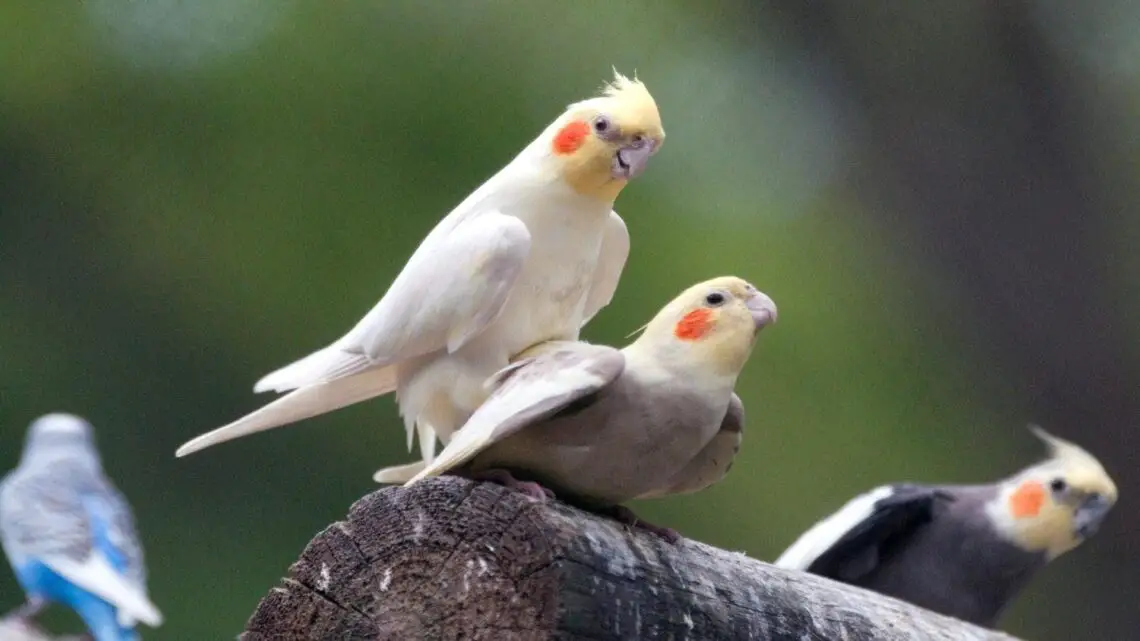
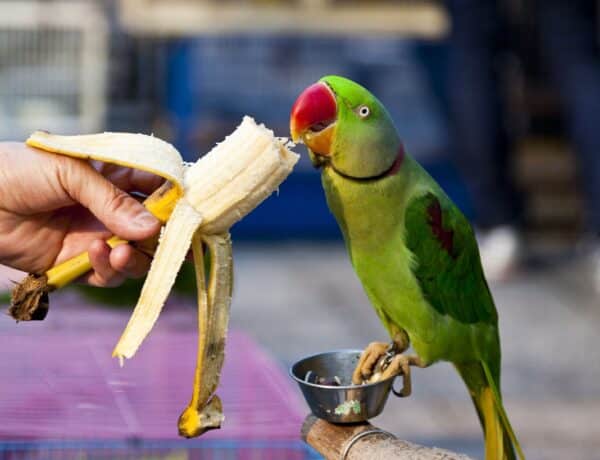
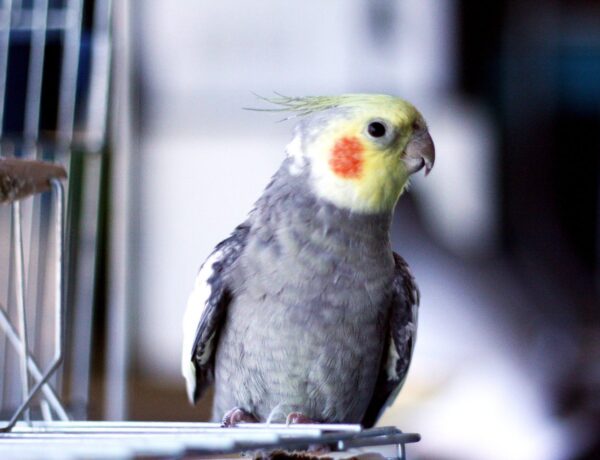
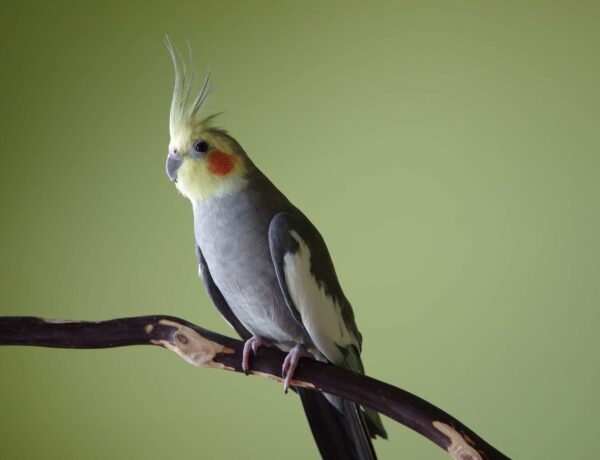
No Comments